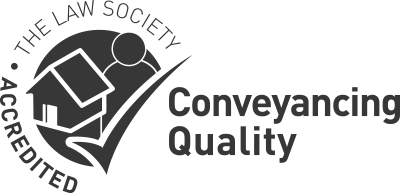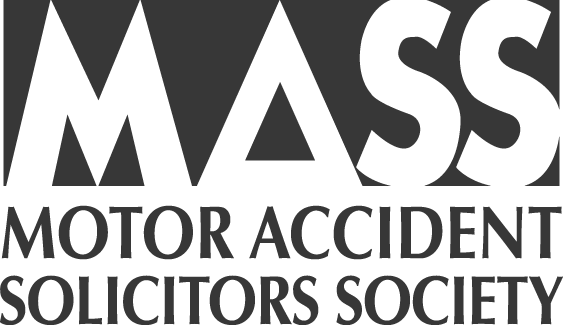When pregnancy and childbirth experiences don’t go as planned due to medical errors, the consequences can be devastating for both mother and baby. Families affected by such incidents often face emotional trauma alongside significant financial burdens. It is no surprise that understanding the legal options you have when seeking compensation becomes a crucial matter in these challenging times.
No Win No Fee Claims Service
Here at Ward and Rider we not only have a number of specialist birth injury and maternity negligence solicitors, we also have the means of making your claim on a No Win No Fee basis. This allows you to pursue compensation without the financial worries so often associated with using the law to obtain a just financial settlement.
Why choose us?
Besides the knowledge and track record of success in cases like yours, perhaps the most crucial reason for selecting Ward and Rider is that we also understand that this is a difficult and distressing time for you, which is why our lawyers are caring and always will listen to you; providing the advice you need throughout your claim.
Why You Need To Make A Claim
The journey through pregnancy should be a time of joy and anticipation. However, when healthcare professionals fail to provide appropriate care, resulting in avoidable harm, you may have grounds to pursue compensation. Our specialised legal professionals will help you to navigate this complex process, ensuring affected families like yours receive the support they deserve.
Birth Injury Claims Can Result In Significant Payouts
Statistics reveal that maternity-related claims represent approximately 12% of all clinical negligence cases, yet they account for a staggering 60% of total compensation payouts. This disparity highlights the severe and often long-term impact of birth injuries on families.
Every case deserves individual attention, as the circumstances surrounding birth injuries vary significantly. From inadequate monitoring during labour to mismanaged pregnancy complications, there are many ways that negligence could take place. Seeking expert legal guidance ensures your specific situation receives the thorough evaluation it warrants.
Types of Birth Injuries Eligible for Claims
Childbirth complications can affect both mother and baby in various ways. Understanding which situations might constitute negligence is the first step toward seeking justice. Healthcare providers have a duty to deliver competent care throughout pregnancy, labour, and the postnatal period.
Maternal Injuries and Preventable Harm
Mothers can experience numerous complications during childbirth that might result from negligent care. These include severe perineal tears (third and fourth-degree), incorrectly performed episiotomies, and complications from cesarean sections. When medical professionals fail to identify risk factors or respond appropriately to emerging complications, it is obvious that mothers could suffer what is deemed preventable harm.
Postpartum complications like retained placental tissue (RPOC) require timely diagnosis and treatment. Delays in addressing these issues can lead to infection, haemorrhage, and other serious consequences. Similarly, unmanaged pre-eclampsia can escalate to dangerous conditions, including stroke, seizures, and multiple organ failure.
Psychological trauma resulting from traumatic birth experiences represents another valid basis for claims. The emotional impact of birth trauma can be profound and long-lasting, affecting the mother’s relationship with her child and overall mental well-being.
Infant-Related Complications
Babies can suffer various injuries during birth that might warrant legal action when caused by negligence. Cerebral palsy resulting from oxygen deprivation represents one of the most serious outcomes. This condition often requires lifelong care and support, significantly impacting the child’s quality of life and the family’s financial situation.
Other common birth injuries include Erb’s palsy (typically caused by shoulder dystocia), fractured bones, nerve damage, and brain haemorrhages leading to seizures. When these injuries result from improper delivery techniques or failure to monitor fetal distress, families may have grounds for compensation claims.
Missed Diagnosis
Missed diagnoses during pregnancy screening can also lead to preventable conditions. Failure to identify conditions like Down Syndrome, spina bifida, or heart defects denies parents the opportunity to make informed decisions about their pregnancy or prepare for specialised care their child might need.
Time Limitations for Filing Birth Injury Claims
Understanding the legal timeframes for initiating claims is essential. In most cases, there’s a three-year limitation period from either the date of injury or when you first became aware that negligence caused the harm. However, several important exceptions exist.
For claims involving children, the three-year countdown begins on their 18th birthday, giving families until the child turns 21 to pursue legal action. This extended timeframe recognises that some birth injuries might not become apparent immediately or that families may need time to focus on their child’s care before considering legal options.
In cases where the affected individual lacks mental capacity due to their injuries, there may be no time limitation at all. This provision particularly applies to severe cerebral palsy cases, ensuring that families can seek justice regardless of when they become aware of potential negligence.
Despite these extensions, consulting with specialised lawyers as soon as possible offers significant advantages. Early investigation allows for better evidence preservation and potentially faster access to interim payments that can fund immediate care needs while the full claim progresses.
The Compensation Claim Process Explained
Pursuing a birth injury claim involves several distinct stages, each requiring careful attention to detail. Understanding this process helps families prepare for what lies ahead and manage expectations appropriately.
Initial Consultation and Case Evaluation
The journey begins with a free, no-obligation consultation with one of our specialised lawyers. During this meeting, we will discuss your experiences, assess whether negligence likely occurred, and explain potential funding options, including No Win No Fee arrangements.
This evaluation phase involves gathering preliminary information about your pregnancy, labour, delivery, and any subsequent complications. Our legal professionals will then review all available medical records and consult with independent medical experts to determine if care did indeed fall below acceptable standards.
Based on this assessment, our legal team will advise whether you have reasonable grounds to proceed with a claim. They’ll also provide an initial indication of potential compensation amounts, though these estimates may evolve as more information becomes available.
Building Your Case
If your claim proceeds, our lawyers will conduct thorough investigations, collecting comprehensive evidence to support your case. This typically includes obtaining complete medical records, securing expert medical opinions, and documenting all impacts of the injury on your family’s life.
Independent medical specialists play a crucial role in this phase, evaluating what care should have been provided and identifying how deviations from standard practice contributed to injuries. They also assess ongoing and future care needs, something which significantly influences compensation amounts.
The legal team will also document all financial losses resulting from the injury, including medical expenses, lost income, and costs of specialised equipment or home modifications. This comprehensive approach ensures all aspects of your family’s suffering are recognised in any settlement.
Negotiation and Resolution
Most birth injury claims are resolved through negotiation rather than court proceedings, thus we will approach the responsible healthcare provider or NHS trust to establish liability early in the process. If responsibility is accepted, we will work to secure interim payments to address immediate needs while final settlement discussions continue.
Settlement negotiations focus on ensuring compensation adequately covers all current and future needs resulting from the injury. This includes ongoing medical care, therapy services, specialised equipment, adapted housing, and lost earnings potential for both affected children and parents who become caregivers.
If negotiations don’t yield appropriate compensation, the legal team may initiate court proceedings. However, even after filing court documents, most cases settle before reaching trial. Throughout this process, your legal representatives will provide guidance and support, ensuring you understand each development in your case.
Calculating Compensation in Birth Injury Cases
Compensation for birth injuries aims to provide financial security and support for affected families. Understanding how these amounts are determined helps set realistic expectations about potential outcomes.
General Damages
This component addresses pain, suffering, and loss of amenity experienced by the injured party. Courts use established guidelines (Judicial College Guidelines) to determine appropriate amounts based on injury type and severity.
For serious birth injuries resulting in conditions like cerebral palsy, general damages can be substantial, reflecting the profound impact on quality of life. Similarly, mothers who experience severe physical trauma or psychological injuries receive compensation proportionate to their suffering.
The assessment considers both immediate pain and ongoing challenges, recognising that birth injuries often have lifelong consequences. While no amount can truly compensate for such experiences, these payments acknowledge the non-financial aspects of injury impact.
Special Damages
This category covers all financial losses resulting from the injury, both past and future. For serious birth injuries, these amounts often significantly exceed general damages, reflecting the substantial costs of lifelong care.
Special damages typically include medical expenses, rehabilitation costs, specialised equipment, home adaptations, and transportation needs. For children with disabilities, educational support and lost future earnings also factor into calculations.
For parents, compensation may cover lost income when caregiving responsibilities prevent employment. In cases where professional care is needed, the substantial lifetime cost of these services forms a major component of special damages.
Real-World Settlement Examples
Recent settlements demonstrate the significant compensation awarded in successful birth injury cases. Settlements exceeding £15 million are not uncommon for severe cerebral palsy cases, reflecting the extensive lifetime care requirements.
Even for less severe injuries, compensation can reach substantial amounts. For instance, maternal injuries resulting in ongoing health issues might receive settlements of £175,000 or more, depending on specific circumstances and long-term impacts.
These examples highlight why specialised legal representation matters—experienced lawyers understand how to accurately value all aspects of your claim, ensuring no element of your family’s suffering goes uncompensated.
Funding Your Legal Claim
Concerns about legal costs shouldn’t prevent families from seeking justice. Various funding options exist to make quality legal representation accessible regardless of financial circumstances, the most popular being No Win No Fee.
No Win No Fee Arrangements
Most birth injury claims proceed under Conditional Fee Agreements (CFAs), commonly known as “No Win No Fee” arrangements. This approach eliminates upfront costs and financial risk for families pursuing claims.
Under these agreements, we will receive payment only if your claim succeeds. The fees are primarily paid by the opposing party, with a portion potentially coming from your compensation. However, your legal team will explain any potential deductions before you proceed, ensuring complete transparency.
These arrangements typically include After-The-Event (ATE) insurance policies that protect you from liability for your opponent’s costs if your claim is unsuccessful. This comprehensive protection allows families to pursue justice without financial worry.
Alternative Funding Options
Some families may have Legal Expenses Insurance (LEI) coverage through household insurance policies or trade union memberships. These existing policies can provide excellent funding for birth injury claims without impacting your compensation.
Your legal team will review all potential funding sources during initial consultations, recommending the most advantageous option for your specific circumstances. This personalised approach ensures you receive maximum benefit from available resources.
Regardless of funding method, reputable firms like Ward and Rider provide clear explanations of all financial aspects before proceeding with your claim. This transparency allows you to make informed decisions without concern about unexpected costs.
Choosing Specialised Legal Representation
Selecting the right legal team can significantly impact your claim’s outcome. Birth injury cases require specific expertise due to their medical complexity and the substantial compensation often involved.
You need a legal firm with a dedicated clinical negligence department, as well as specific experience in birth injury claims. Legal firms accredited by organisations like Action against Medical Accidents (AvMA) or the Law Society’s Clinical Negligence Panel have demonstrated specialised knowledge in this field.
To prove that we can help, check out our track record, these providing an insight into our experience for comparable cases. Please do raise this matter at the initial interview if you are the slightest bit worried.
Another Reason To Choose Ward and Rider
The initial consultation offers a valuable opportunities to assess our legal team / your potential representatives. During the meeting, be sure to take notice of whether our team members listen compassionately, explain complex concepts clearly, and demonstrate a genuine understanding of birth injury impacts. We are sure you will be impressed.
Final Considerations
Birth injuries can transform families’ lives in profound ways. While legal action cannot undo harm experienced, appropriate compensation provides crucial support for affected individuals and their caregivers.
Beyond financial benefits, successful claims often drive improvements in maternity care standards. By highlighting systemic issues, these cases contribute to safer practices that may prevent similar incidents affecting other families.
The decision to pursue a claim deserves careful consideration. Speaking with a specialised lawyer will help clarify your options without creating any obligation to proceed. These initial discussions provide valuable perspectives on potential outcomes while respecting your family’s need for time and space to make important decisions.
Remember that each birth injury case presents unique circumstances. Personalised legal advice remains essential for understanding how general principles apply to your specific situation and determining the most appropriate path forward for your family.





